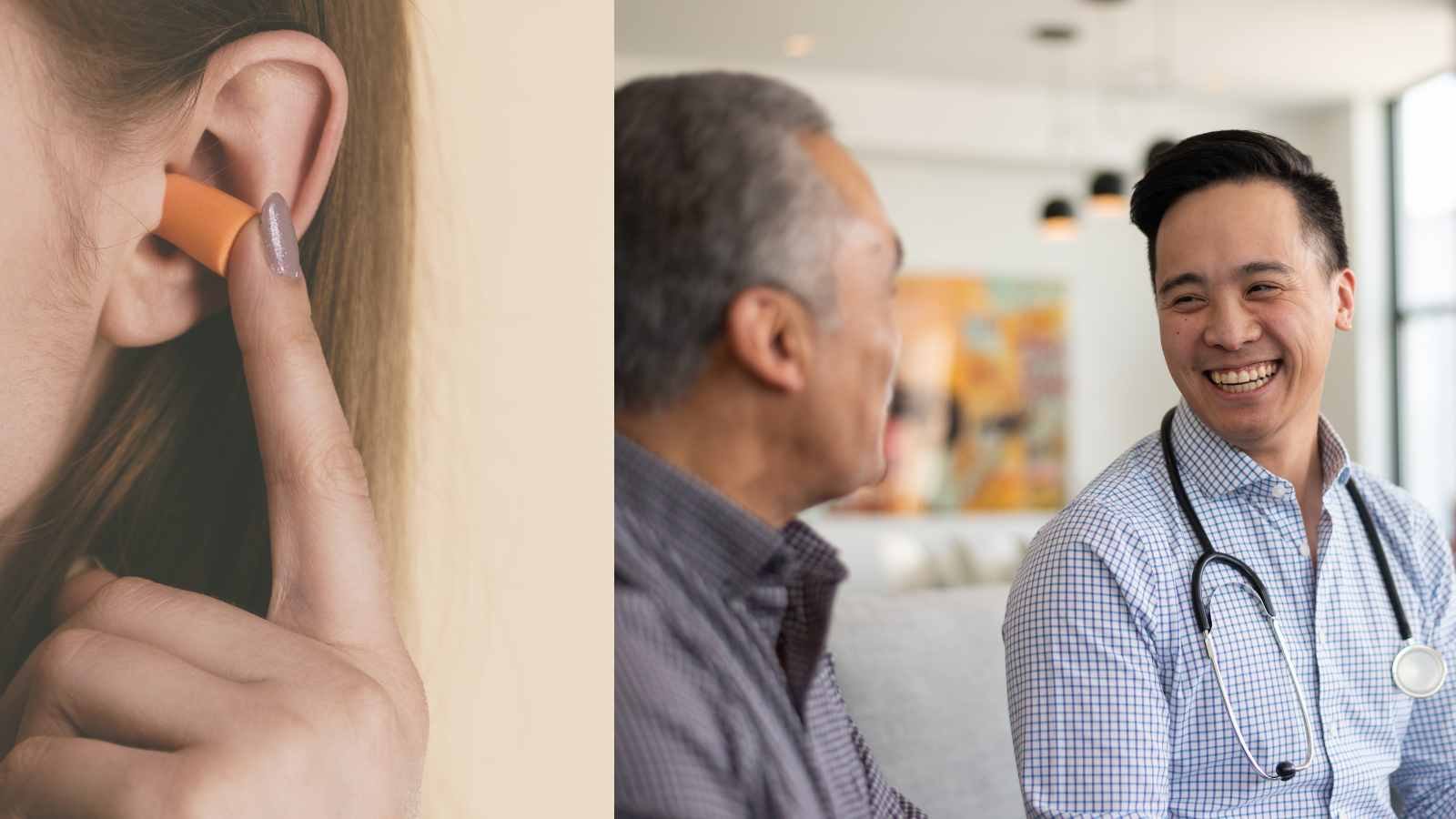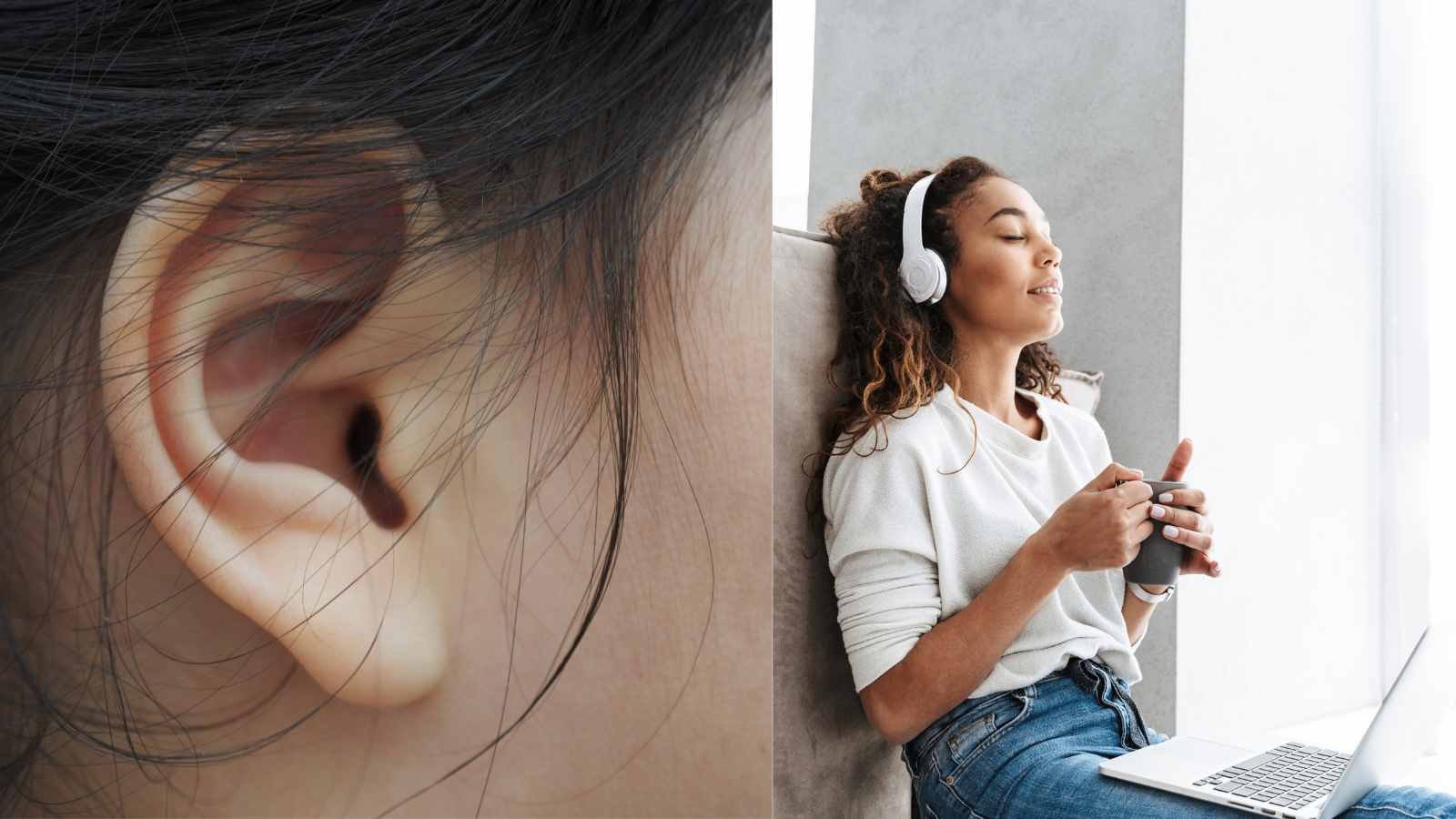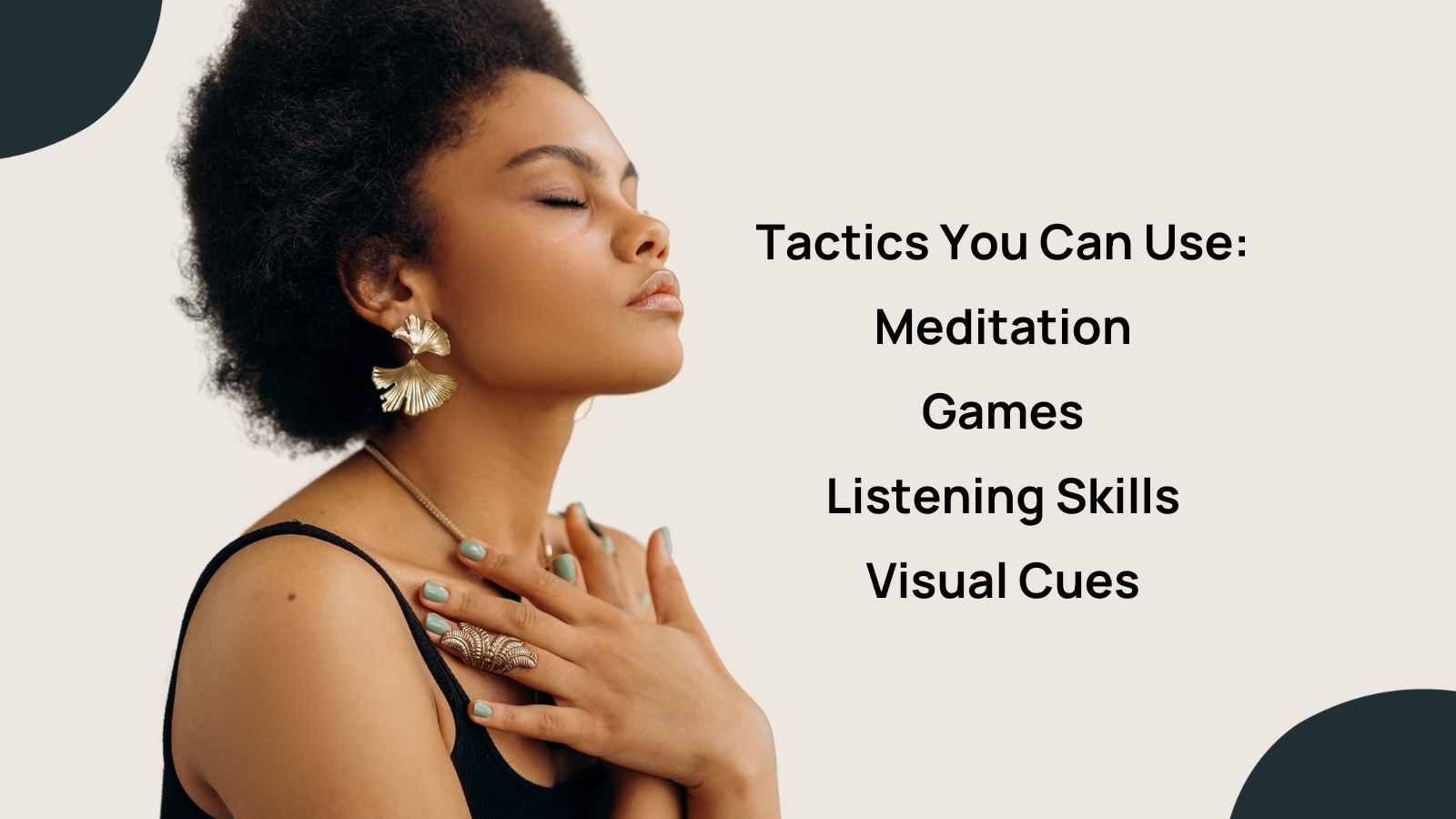Key Takeaways:
- The best way to maintain hearing and prevent hearing loss is to maintain good overall health.
- Healthy decisions to maintain hearing and stay well include: regular exercise, not smoking, using hearing protection in loud settings, and seeing your doctor for regular check-ups.
- Hearing is about more than just the ears - it's aso the brain. Meditation is an example of an activity that can help clear the mind, allowing you to hear more clearly.
- Monitoring hearing regularly helps keep an eye on your hearing and supports good overall health.

If you have hearing loss, the most effective way of treating it is with hearing aids. But there are other ways to maintain and improve your hearing naturally. In this article, we will explore several areas: Preventing hearing loss through lifestyle modifications and optimizing your receptive listening or processing skills. Hearing well is about more than just the ear—it’s also about your overall health.
Making Healthy Choices

Patients sometimes ask me what they can do to prevent hearing loss or prevent it from worsening. As with many health conditions, hearing loss is a combination of genes and environment. While we can't control our genes, we do have control over our environmental exposures. Therefore, metabolic health and environmental noise exposure are critical areas for optimal hearing health.
Let's look at some points to consider below.

Don't Smoke
It’s just a fact: Smoking is bad for your health and your ears. Studies have shown that smoking nearly doubles the risk of developing age-related hearing loss. Not only that, but nicotine and other harmful chemicals in cigarette smoke irritate the middle ear and Eustachian tube, increasing the likelihood of ear infections. So quitting smoking and even staying away from secondhand smoke, is one of the best things you can do for your overall health and maintaining healthy ears.
Take Your Vitamins
Studies show that certain supplements like vitamin D and A, plus folic acid are essential for good ear health. Some other nutrients are also protective against hearing loss: β-carotene, vitamin C, and magnesium.These vitamins work together to support the inner ear and prevent damage to auditory cells that could lead to hearing loss over time. Eating foods rich in these vitamins or taking multivitamins with these ingredients can help maintain holistic and metabolic health, with the positive side effect of healthy ears and reduced risk of developing hearing loss.

Use Hearing Protection
Protecting your ears is another crucial step in maintaining good ear health. The cells in your inner ear depend on a healthy environment to function well and do their job. Therefore, avoiding harmful chemicals like cigarette smoke is vital to preserving their function. However, just as important is to prevent noise pollution in your environment. While sound is invisible, the effects of loud sound exposure have a very real impact on your hearing health over your lifespan.
How can you do that? Limiting the volume when listening to music or using hearing protection when working with machinery or in other loud settings will help reduce noise-induced damage over time. Always remember that if you’re exposed to loud noises consistently over time it’s best practice to wear hearing protection or limit your length of exposure. Consider using a Decibel Meter app to check your sound exposure.
See Your Doctor Regularly
Prevention is critical to keeping yourself healthy and maintaining well-being. Schedule your annual physical with your doctor to catch any health concerns early. Conditions such as diabetes, autoimmune disorders, or heart disease, impact your hearing and overall health. Patients are sometimes surprised to learn that their health conditions can show up on their audiogram. However, any condition that affects blood flow to the cochlea can impact hearing. By keeping those annual appointments, you'll be sure to keep your health in check or take action early if any concerns arise.

Hygiene
While the ear is generally self-cleaning, some of us are more prone to wax build-up due to our ear anatomy or surgical history. Keeping the ear free of build-up from wax or debris will keep you hearing your best.
Earwax
Earwax plays a vital role in keeping our ears healthy by trapping dirt and debris to prevent infection. It is essential to keep the amount of wax in our ears at a healthy level. To note, too little wax may lead to dryness which creates irritation, while too much wax may lead to muffled hearing. Regular professional cleaning is helpful to keep the ear canals from getting plugged up with wax for those who get too much wax build-up.
Hearing versus Listening

Hearing is about more than just detecting sound in your environment. In fact, it's also about processing. So if you're feeling stressed, overwhelmed, or have quite a bit of trouble hearing in background noise, there are actions you can take to help to more easily understand speech.
Meditation
Have you experienced when someone was talking to you and you heard the words they said, but couldn't process it? Do you find your mind is racing and feel distracted by work or other thoughts? If you have any "mental noise" interfering with your ability to focus, that can impact your ability to listen and understand. Meditation is beneficial for stress management and to help quiet your mind. When we feel stressed, focusing on conversation or sounds around us can be hard because we are so distracted or preoccupied with other thoughts.
Clearing your mind can improve your focus and ability to receive information. Additionally, people who suffer from tinnitus find that meditation can help to reduce their tinnitus volume, enhancing their ability to hear and receive what others are saying.
Games and Listening Skills
There are programs designed specifically for people with hearing impairments that aim at helping them improve their listening skills through games and puzzles. For example, clEAR is a science-based approach to improving speech understanding. These exercises target specific areas such as speech recognition skills or speech in noise using games, which are fundamental aspects related directly to how well we understand what's being said around us. The more we practice these skills, the stronger they can become.
Visual Cues
Many of us use lipreading to reinforce our understanding of conversation visually. Lip reading is another excellent way for people who are hard of hearing or struggle in noisy environments to understand speech better. Nancy Tye-Murray at Washington University in St. Louis is an expert in this area and has shown that combined auditory-visual modalities are helpful for auditory rehabilitation programs to help improve speech understanding.
And, by paying attention not just to what someone says but also to how they say it, we can gain valuable insight into what they mean beyond their words. Here are some tips that can improve communication:
- Make eye contact
- Get their attention before speaking
- Be within 5 to 7 feet
- Face your conversation partner
- Reduce any background noise
Optimizing your listening environment can go a long way to improving communication.
Conclusion
While there are natural ways to improve and maintain your hearing health, a hearing test is the best way to know your hearing status. If you have hearing loss, hearing aids will help you hear your best. Combining the tips on this list with properly fit hearing aids and regular hearing tests will keep you on top of your hearing health.






